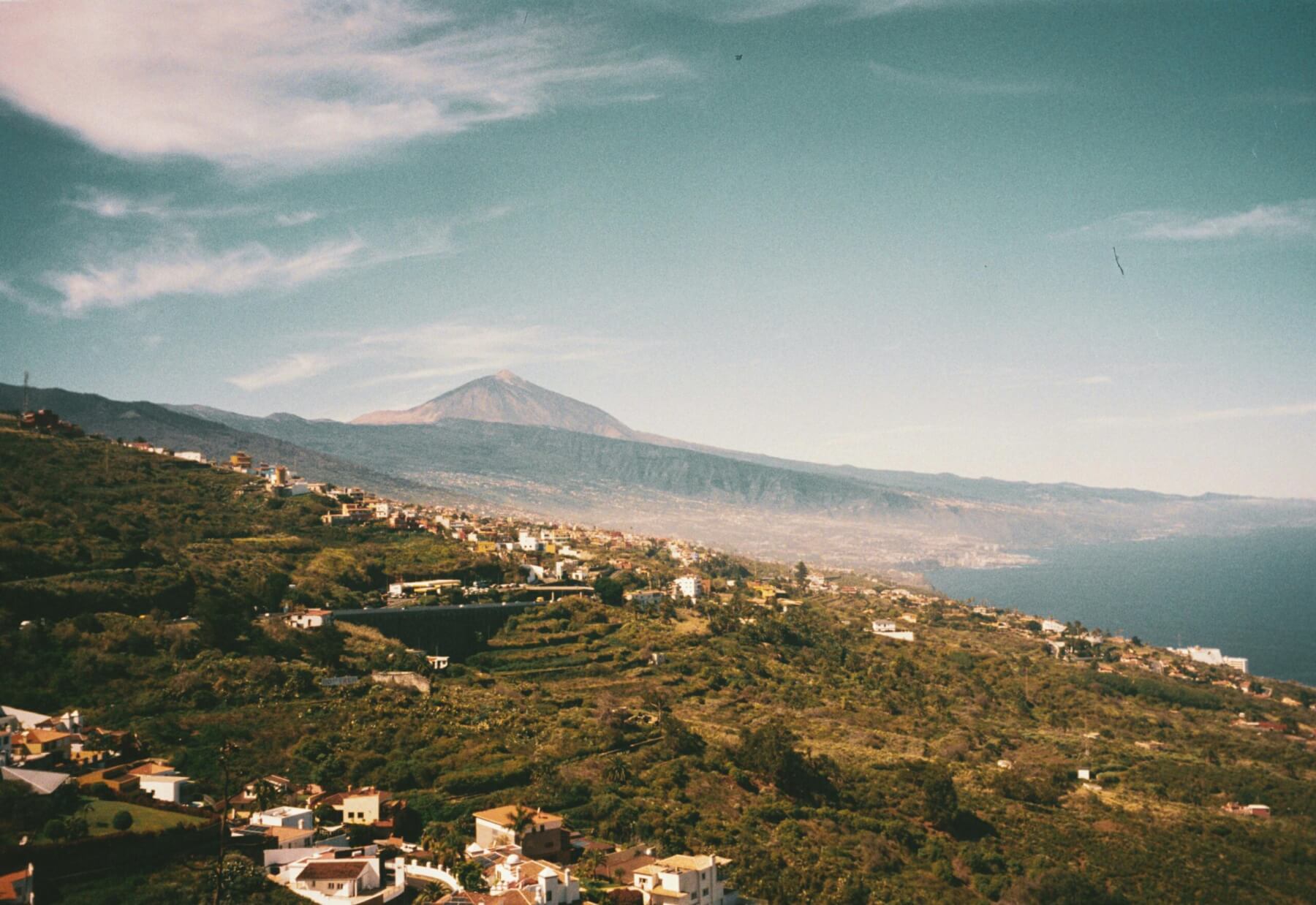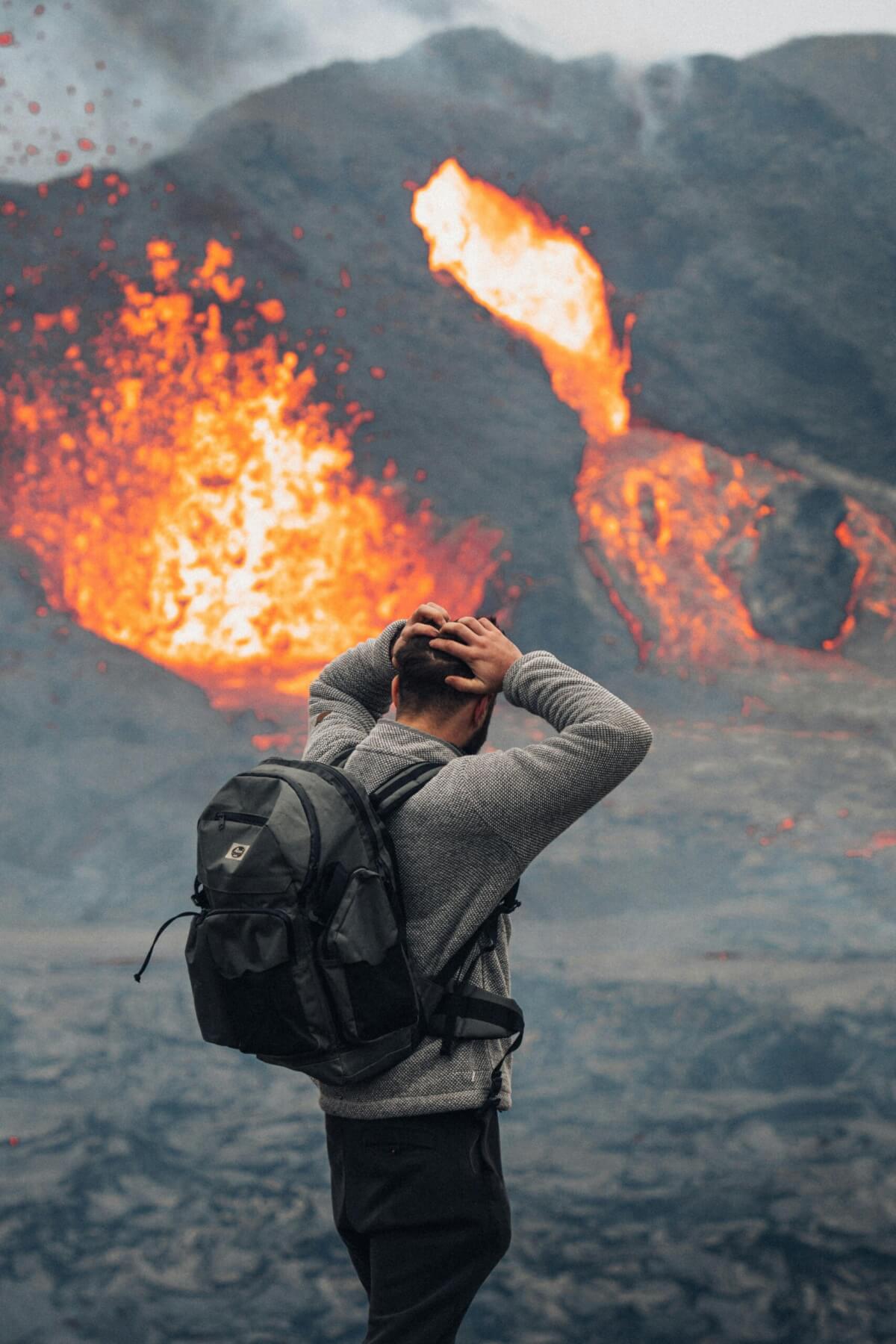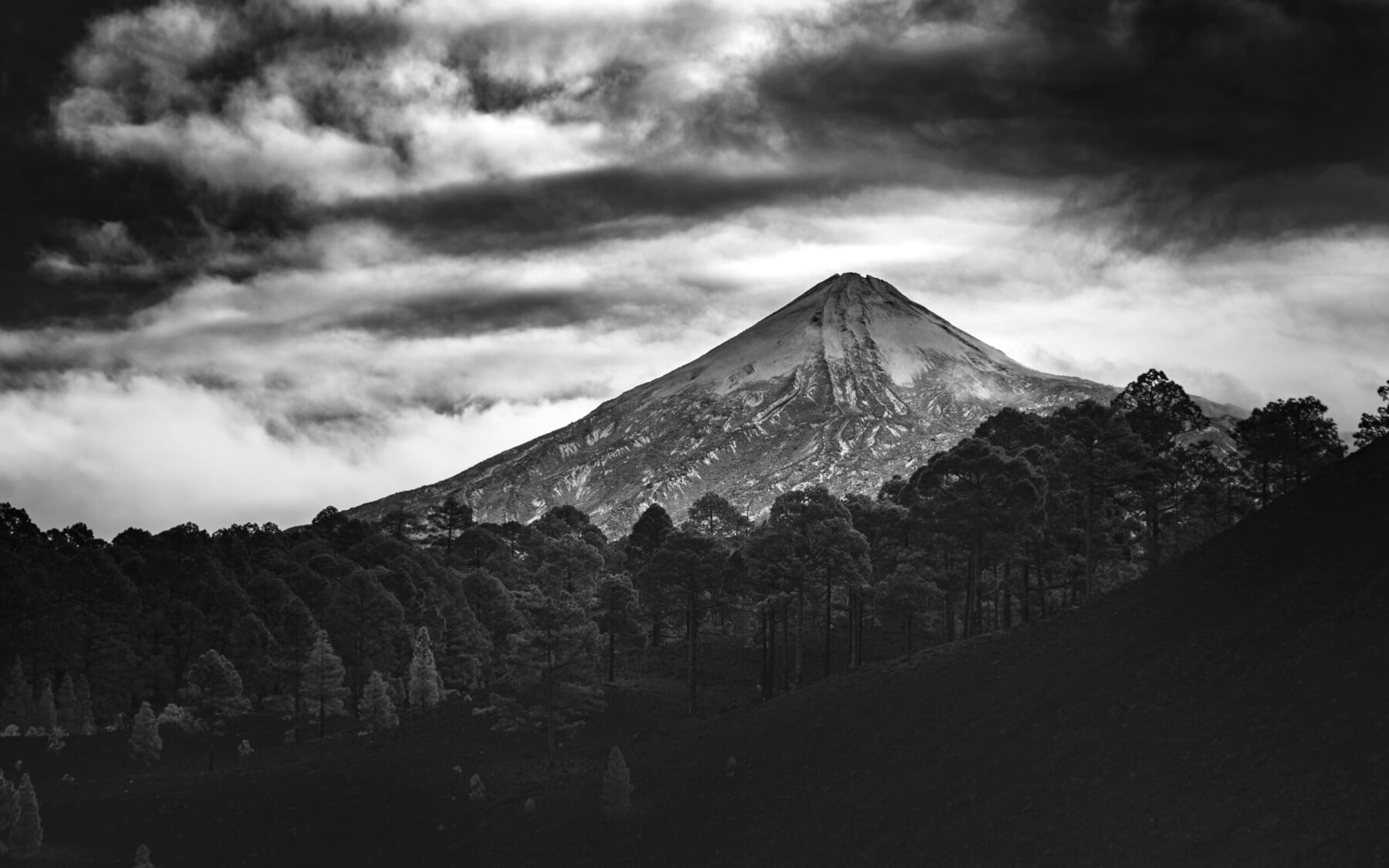I am sitting in Tenerife, a volcanic island with a very volcanically active past, chatting with linguist Dr Hannah Little from the UK about how people perceive risk.
A linguist specialises in how our use of words affects how we think about the world. Amazingly, she is working with SETI (Search for extraterrestrial intelligence) to come up with a plan on how to communicate with aliens, should we actually find them. There is so much power in words in every aspect of society. They can destroy lives or save them.

Coastal Town Near Teide Volcano on Tenerife in Spain. Photo: Telofilmo, pexels.com

Janine Krippner
We are here with the GeoTenerife programme talking about how wording of information changes how people take in information on risk or events, like a virus or a potentially impending volcanic eruption. Volcanic risk is the potential loss or damage to any aspect of society. This takes into account the probability or chance of specific volcanic activity (for example ashfall, lahar, pyroclastic flow) occurring.
There are so many different ways to express how something will impact you, your life, your family, and your belongings, and it is the responsibility of scientists to understand that so that we can better guide you towards making safer decisions. As someone who specialises in the processes in volcanoes and how they can impact areas, this is far beyond my specialty. This is why we work together.
I am interested in the understanding of how people might be impacted by volcanic unrest (before an eruption) or eruption activity so that we can know where to begin in empowering communities with information on how to act and protect themselves. Do you know if you might be affected by an eruption? Do you understand what volcanic ash is? Do you understand what to do if volcanic ash falls where you are?
Will you feel more confident in a statement like ‘Ruapehu is likely to erupt’ if we tell you more about what information we used to figure that out? What does the word ‘likely’ even mean for you? If I said it was likely to rain today, do you feel differently about that than ‘there is likely to be a fatal accident on the main street of Te Awamutu today’, or ‘there is likely to be an eruption at Taupo today’? Would you take an umbrella? Would you drive down the main street? Would you avoid going outside, avoid the main street, or avoid the Taupo area? If I said ‘there is a 20 per cent chance of a small eruption at Ruapehu’, would you think differently about that than ‘there is a 20 per cent chance of a small eruption below the main street of Auckland’? Context and how we perceive these different scenarios is important.
In New Zealand we have a bit of a superpower in that our volcanology community values working with social scientists to ensure that the scientific information we have on volcanoes can be given to communities in helpful ways. This is not the case in many other places, and a lot of damage has been unwillingly done even when the best of intentions were there. We will get it wrong, we learn from mistakes made around the world, and we do truly want to be helpful. Volcanoes are scary. The words we use to describe them are critical.

A man in a gray jacket stands near an erupting volcano. Photo: Eriks Cistovs, pexels.com

Mountain Under Cloudy Sky in Tenerife. Photo: Marek Piwnicki, pexels.com








